10 Best Herbal Capsules For Cough
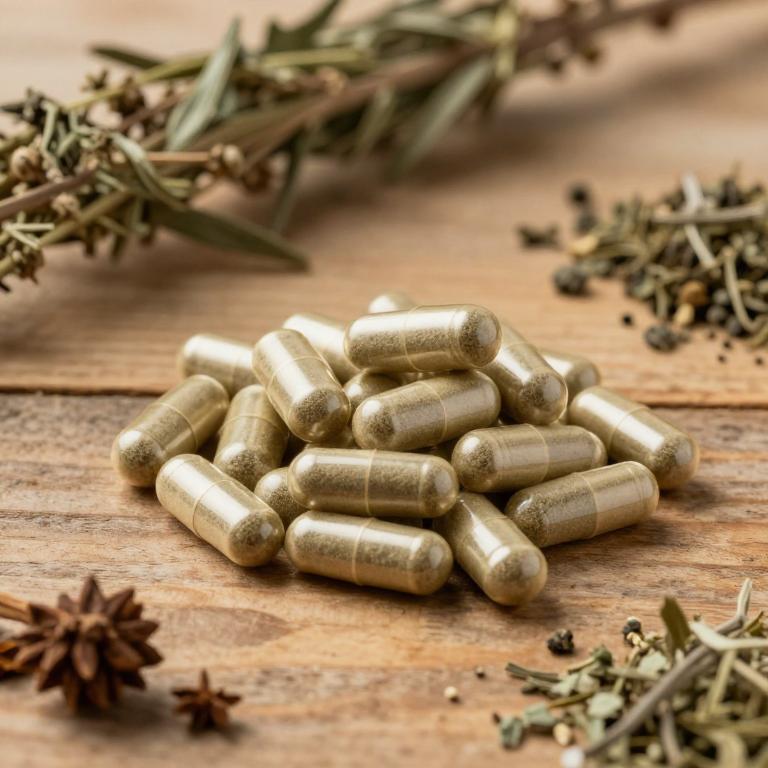
Herbal capsules for cough are a natural alternative to conventional medications, often containing ingredients like ginger, echinacea, licorice root, and ivy.
These capsules are designed to soothe throat irritation, reduce mucus production, and ease respiratory discomfort. They are typically easy to take, convenient, and can be used as part of a holistic approach to managing cough symptoms. Many herbal formulations are free from synthetic additives, making them appealing to individuals seeking natural remedies.
However, it's important to consult a healthcare professional before use, especially for those with existing health conditions or taking other medications.
Table of Contents
- 1. Thyme (Thymus vulgaris)
- 2. Eucalyptus (Eucalyptus globulus)
- 3. Chamomile (Matricaria chamomilla)
- 4. Ginger (Zingiber officinale)
- 5. Ceylon cinnamon (Cinnamomum verum)
- 6. Chaste tree (Vitex agnus-castus)
- 7. Fennel (Foeniculum vulgare)
- 8. Rosemary (Rosmarinus officinalis)
- 9. Peppermint (Mentha piperita)
- 10. Scots pine (Pinus sylvestris)
1. Thyme (Thymus vulgaris)

Thymus vulgaris, also known as thyme, is a popular herbal remedy often used in the form of capsules to support respiratory health.
These herbal capsules are believed to help alleviate symptoms of cough by acting as a natural expectorant and bronchodilator. Thymus vulgaris contains compounds like thymol and carvacrol, which have antimicrobial and anti-inflammatory properties that may reduce irritation in the respiratory tract. When taken as part of a holistic approach, thyme capsules can be a safe and effective option for managing persistent coughs.
However, it is important to consult with a healthcare professional before using these supplements, especially for individuals with existing medical conditions or those taking other medications.
2. Eucalyptus (Eucalyptus globulus)
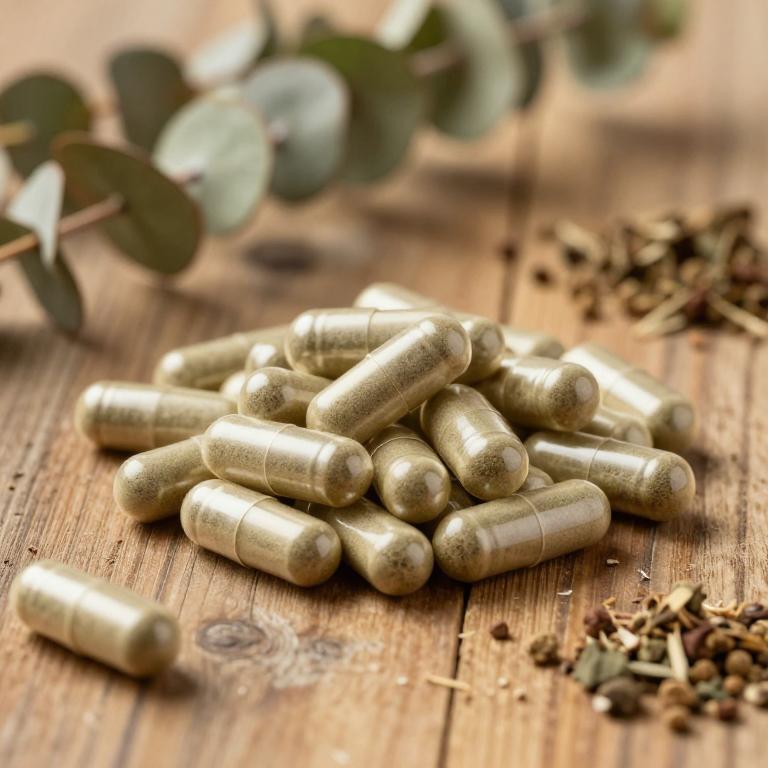
Eucalyptus globulus, commonly known as Australian eucalyptus, is a widely used plant in herbal medicine for its therapeutic properties, particularly in relieving respiratory symptoms.
The essential oil derived from its leaves contains compounds like eucalyptol, which have anti-inflammatory, antimicrobial, and decongestant effects. Eucalyptus globulus herbal capsules are often formulated to support natural relief from coughs, sore throats, and nasal congestion by promoting clearer breathing. These capsules are generally safe for most adults when used as directed, though they may not be suitable for children or individuals with certain medical conditions.
They are a popular alternative to conventional cough remedies, offering a natural approach to managing respiratory discomfort.
3. Chamomile (Matricaria chamomilla)
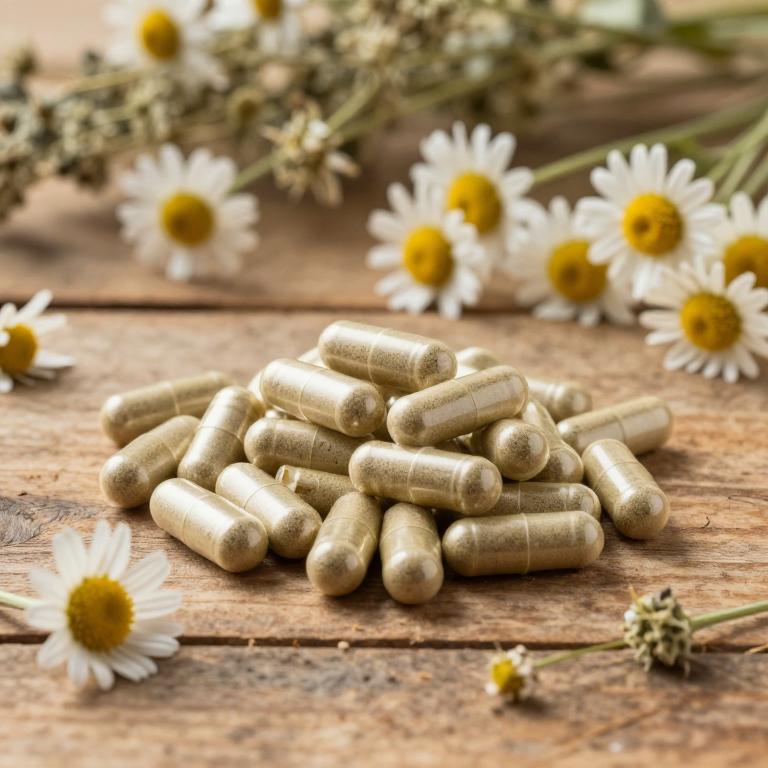
Matricaria chamomilla, commonly known as German chamomile, is often used in herbal capsules to help alleviate symptoms of cough due to its anti-inflammatory and soothing properties.
These capsules typically contain standardized extracts of the plant’s flowers, which are rich in active compounds like flavonoids and bisabolol. Chamomile is believed to reduce irritation in the throat and ease bronchial spasms, making it a popular natural remedy for dry or productive coughs. While generally safe, it is important to consult a healthcare provider before use, especially for individuals with allergies or those taking other medications.
Herbal capsules offer a convenient and concentrated form of chamomile, allowing for easy integration into a daily wellness routine.
4. Ginger (Zingiber officinale)

Zingiber officinale, commonly known as ginger, has been traditionally used for its anti-inflammatory and soothing properties, making it a popular herbal remedy for coughs.
Ginger capsules are a convenient form of this herb, allowing for easy consumption and consistent dosing. The active compounds in ginger, such as gingerol and shogaol, may help reduce throat irritation and ease coughing by combating inflammation and mucus production. When taken as part of a holistic approach, ginger capsules can support respiratory health and provide natural relief from persistent coughs.
However, it is advisable to consult a healthcare professional before using ginger capsules, especially for individuals with existing health conditions or those taking other medications.
5. Ceylon cinnamon (Cinnamomum verum)
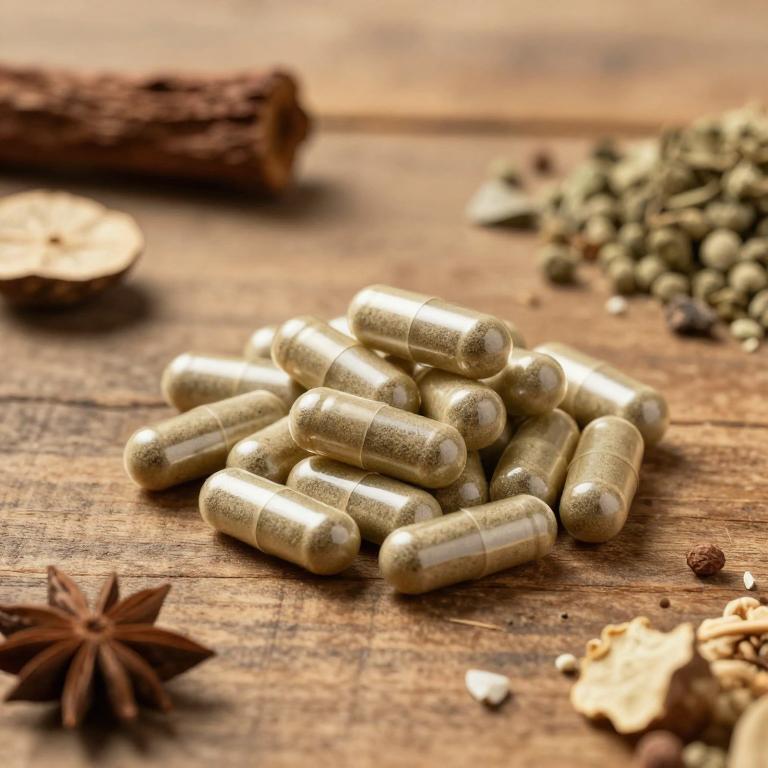
Cinnamomum verum, commonly known as true cinnamon, is often used in herbal formulations for its potential respiratory benefits.
When encapsulated as herbal capsules, it may help alleviate symptoms of cough by acting as a mild expectorant and soothing the throat. The essential oils in cinnamon, such as cinnamaldehyde, possess antimicrobial and anti-inflammatory properties that may reduce irritation in the respiratory tract. While it is not a cure for cough, it can be a complementary remedy when used alongside other treatments.
As with any herbal supplement, it is advisable to consult a healthcare professional before use, especially for individuals with existing medical conditions or those taking other medications.
6. Chaste tree (Vitex agnus-castus)

Vitex agnus-castus, commonly known as chaste tree, is traditionally used in herbal medicine for its potential effects on the respiratory system.
While it is more commonly associated with hormonal balance and menstrual regulation, some studies suggest it may have mild antispasmodic and anti-inflammatory properties that could support respiratory health. Vitex agnus-castus herbal capsules are sometimes used as a complementary remedy for coughs, particularly those related to inflammation or nervous system irritation. However, it is important to note that there is limited scientific evidence directly linking vitex to the treatment of coughs, and it should not replace conventional medical care.
As with any herbal supplement, it is advisable to consult a healthcare professional before use, especially for individuals with pre-existing conditions or those taking other medications.
7. Fennel (Foeniculum vulgare)
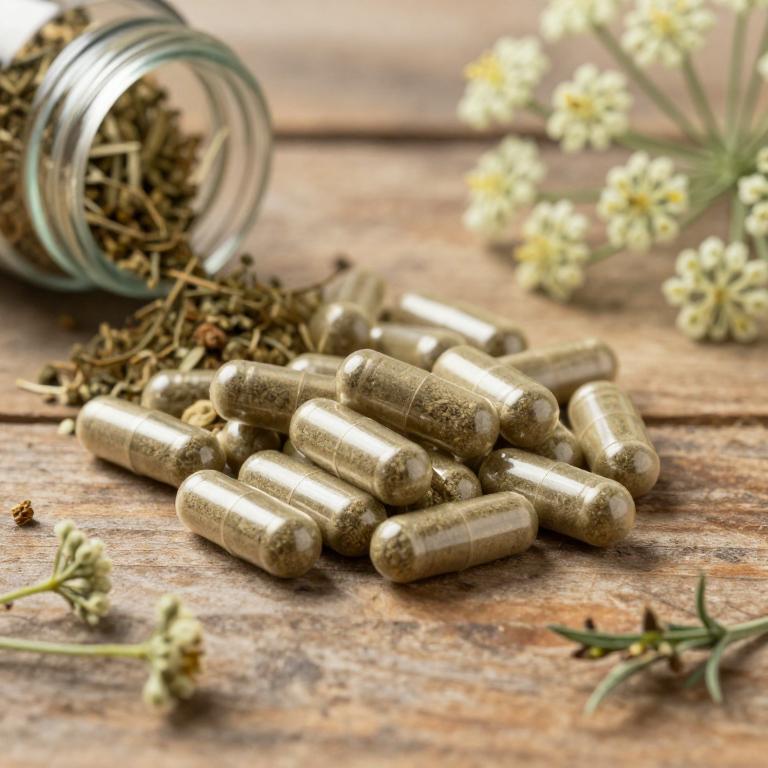
Foeniculum vulgare, commonly known as fennel, is often used in herbal remedies for its potential respiratory benefits.
Fennel herbal capsules are typically made from the dried seeds of the plant and are used to support digestive and respiratory health. These capsules may help alleviate symptoms of cough by acting as a natural expectorant and soothing the throat. Some studies suggest that fennel contains compounds like anethole, which may have anti-inflammatory and antispasmodic properties.
However, it is important to consult with a healthcare provider before using fennel capsules, especially for chronic or persistent coughs.
8. Rosemary (Rosmarinus officinalis)
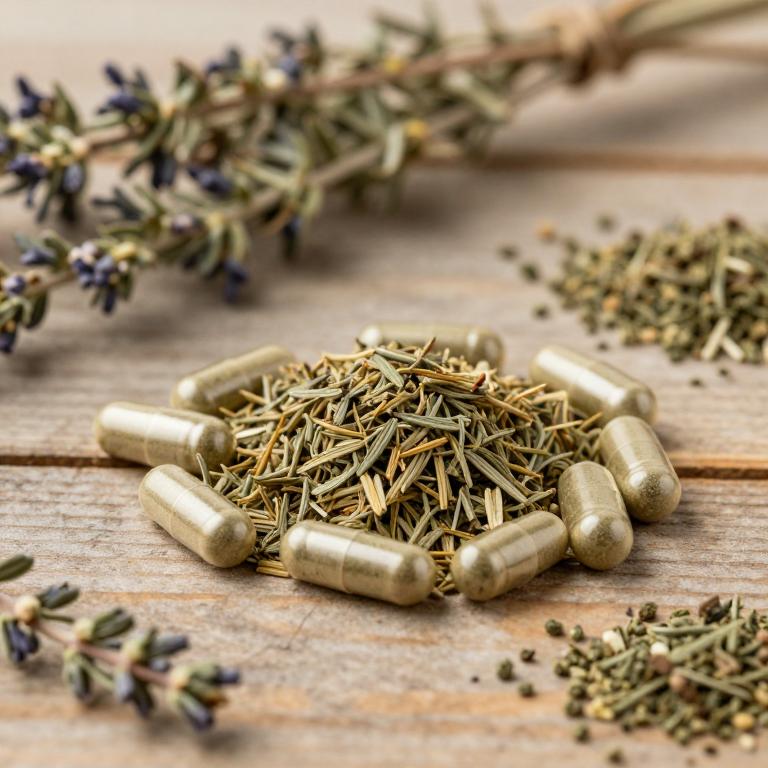
Rosmarinus officinalis, commonly known as rosemary, is a herb widely used in traditional medicine for its various health benefits, including its potential to alleviate cough symptoms.
Rosemary herbal capsules are formulated to provide a concentrated dose of rosemary's essential oils and antioxidants, which may help reduce inflammation and soothe irritated airways. These capsules are often recommended as a natural alternative to conventional cough medications, offering a gentler approach for those seeking herbal remedies. The active compounds in rosemary, such as camphor and rosmarinic acid, are believed to have antimicrobial and antispasmodic properties that may support respiratory health.
However, it is important to consult with a healthcare professional before using rosemary capsules, especially for individuals with existing medical conditions or those taking other medications.
9. Peppermint (Mentha piperita)
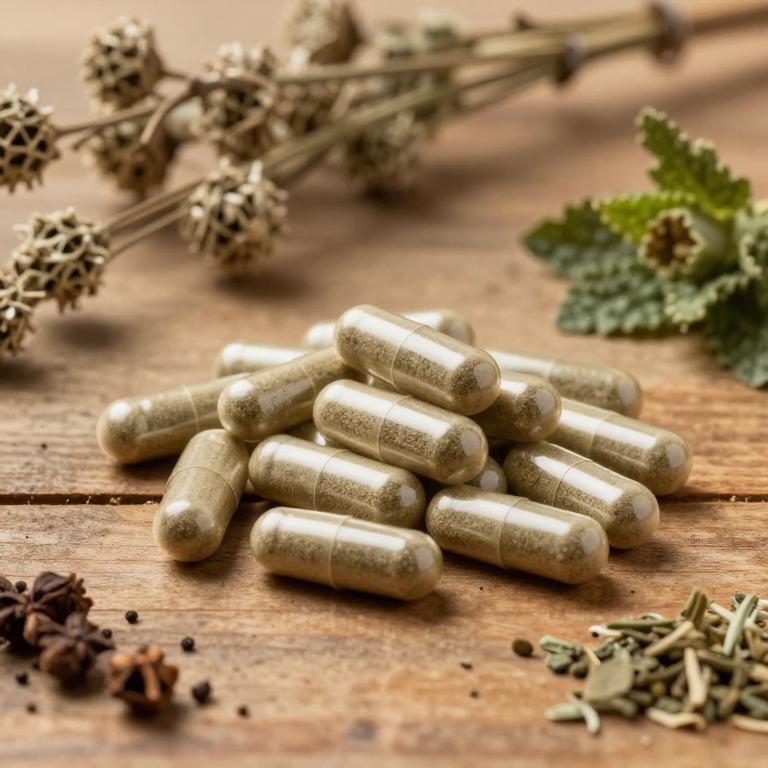
Mentha piperita, commonly known as peppermint, is a popular herbal remedy used in the form of capsules to alleviate cough symptoms.
These capsules contain concentrated extracts of the peppermint plant, which is known for its soothing and antispasmodic properties. Peppermint capsules may help reduce throat irritation and ease the frequency of coughing by acting as a natural decongestant. They are often preferred as a gentle alternative to over-the-counter cough medications, especially for those seeking natural remedies.
However, it is important to consult with a healthcare provider before using peppermint capsules, especially for children or individuals with certain medical conditions.
10. Scots pine (Pinus sylvestris)
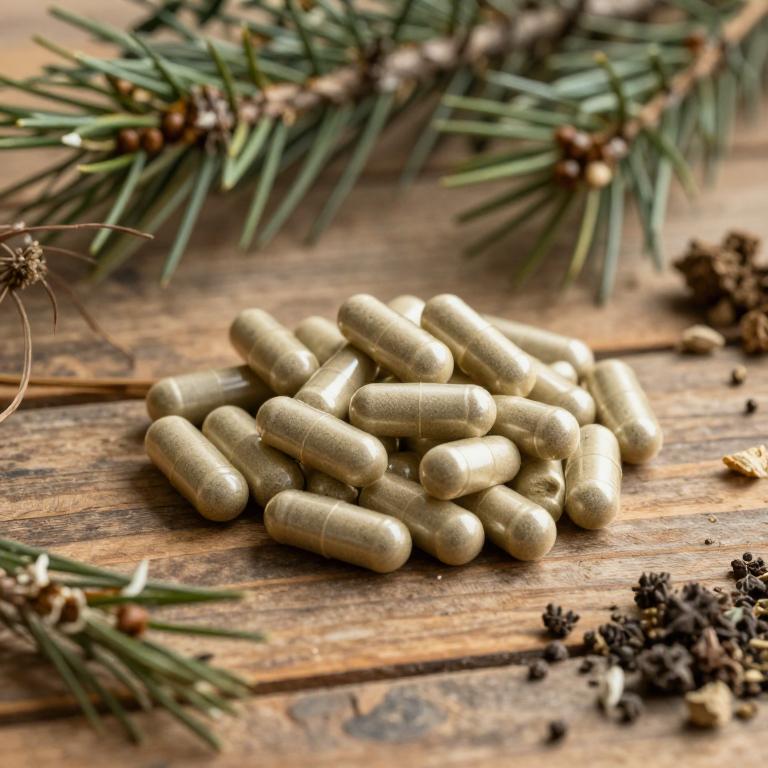
Pinus sylvestris, commonly known as Scots pine, has been traditionally used in herbal medicine for its potential respiratory benefits, including relief from coughs.
The active compounds in Pinus sylvestris herbal capsules, such as terpenes and flavonoids, may help to soothe irritated airways and reduce inflammation. These capsules are often formulated as a natural alternative to conventional cough remedies, offering a mild and supportive approach to managing symptoms. They are typically taken orally in recommended dosages, and may be combined with other herbs for enhanced effectiveness.
However, it is important to consult a healthcare professional before use, especially for individuals with existing health conditions or those taking other medications.